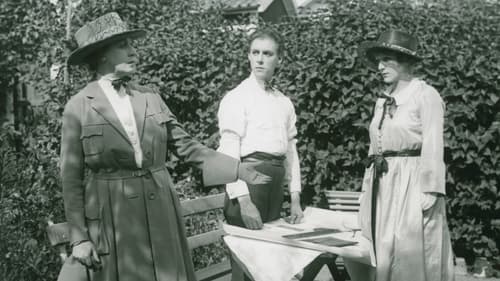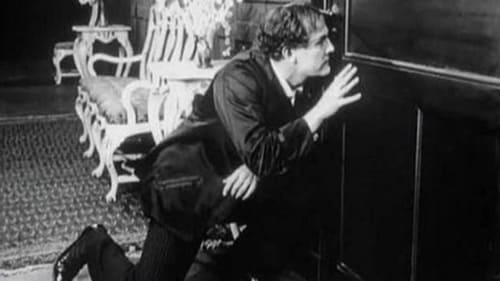
Theatre audience
A married writer's luck turns when he gets a play produced at Théâtre de Paris. He meets the femme fatale who should play the lead in his play. Passion and conflict occurs.

Henrik Smed
The story takes its beginning in 1518 , the Danish King Christian II has taken Sweden. Sten Sture the younger appeal to all loyal subjects to resist. The offer reaches the farmer Mats Waltersson in Dalarna , Sweden's heart and he gathers his men. Dalmas were going from house to house, they do not want a Dane on the throne. At Brännkyrka outside Stockholm is a battle between the Danes and Swedes. Swedes win and the Swedish riksbaneret out during the Battle of Gustav Eriksson Vasa.

Based on the poems by finnish poet Johan Ludvig Runeberg, the movie centers on the Finnish War between Russia and Sweden in 1808.

René Marelle from Marseille is actually a Swede named Richard Bergin, but he has chosen to tamper with his identity to avoid his Swedish military service. A look-alike has taken his place to fifty thousand kronor in compensation.

Auction speculator
"The Ingmar Inheritance". The story of a group of farmers who choose to leave their homes and follow the preacher Helgum to the Holy Land.

Doctor
A woman searches for the child she gave up at birth.

Priest
A stranger comes to work at widow Halla's farm. Halla and the stranger fall in love, but when he is revealed as Eyvind, an escaped thief forced into crime by his family's starvation, they flee and become two of the many outlaws of Iceland's mountains.

Juryman
A 1917 Swedish drama film directed by Victor Sjöström, based on a 1913 novel by Selma Lagerlöf. It was the first in a series of successful Lagerlöf adaptions by Sjöström, made possible by a deal between Lagerlöf and A-B Svenska Biografteatern (later AB Svensk Filmindustri) to adapt at least one Lagerlöf novel each year. Lagerlöf had for many years denied any proposal to let her novels be adapted for film, but after seeing Sjöström's Terje Vigen she finally decided to give her allowance.

Lovers are torn apart by a noble's desire for the female half of the couple.

Police commissioner
After the respectable Dr. Monro was found dead, the housekeeper and two engineers testify in court. A case of commercial delinquency and bribery is reconstructed on that occasion. Sadly only about half the film exists today.

Two smugglers meet two customs officers at sea, and happen to kill them. The story continues fifteen years later when a son of one of the officers and a smuggler's daughter fall in love with each other.

Bank director
Hämnaren (The Avenger) was made in 1915, and was rediscovered in Berlin in 2001. It begins with a woman named Ester, who is reading a letter and crying. The letter says that a man named George won't marry her, because he knows his father would never allow him to marry a Jewish woman. Ester dies of childbirth, and possibly a broken heart. Her suitor Jakob takes care of her son, who is named Josef, and sends George a note, accusing him of causing her death

Member of Parliament
The story is wacky – a gypsy is cursed by her father, so that she has to deny her illegitimate son in order for him to have a successful life. She gives him to a well-to-do lady who has lost her own child. Later, he has grown up to be a politician who wants to become the foreign minister. He doesn’t know that his real mother is the famous Madame de Thebes, the fortuneteller who all politicians make sure to visit! This information falls into the hands of a rival, who tries to use it to ruin his career. Meanwhile, the rival’s attractive daughter is attacked by a ruffian and needs to be rescued… There are a lot of striking images in this film. You can see the beauty of them even if the state of the print is far from perfect. The Norwegian actress Ragna Wettergreen gives a haunting performance as Madame de Thebes, with wisdom and regret – and quite a few melodramatic gestures. Understatement was not the norm in those days.

Member of the Poor Care Board
After Ingeborg Holm's husband becomes sick and dies, the family's small grocery store fails, Ingeborg becomes bankrupt, and she is forced to move to the workhouse. Her three children go to foster homes. Ingeborg simply must see them again.










